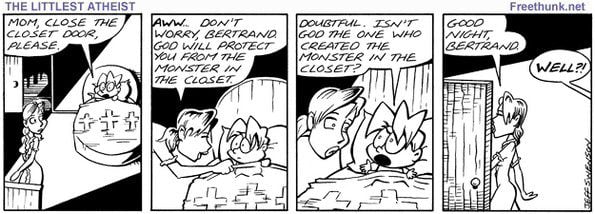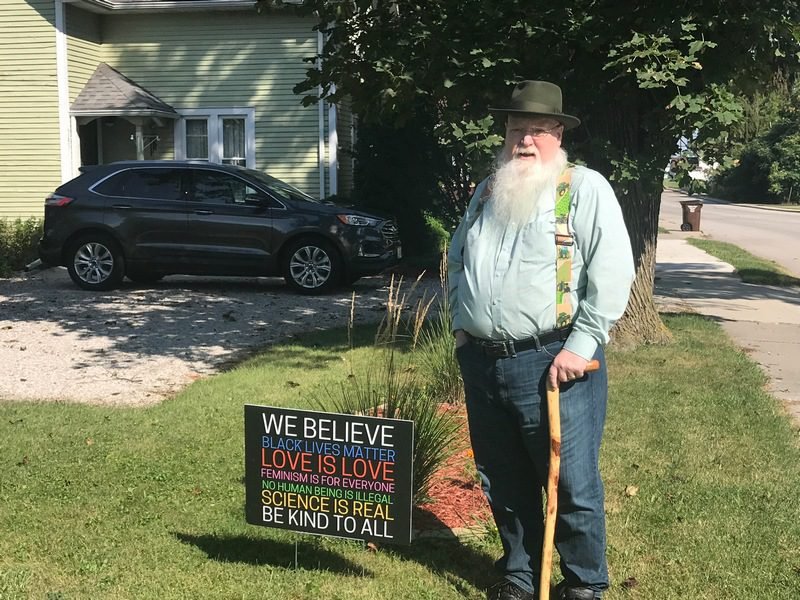
Yet another visit to the doctor’s office, visit number twelve for the year — primary care doctor, dermatologist, cardiologist, podiatrist, neurosurgeon, general surgeon, and orthopedic doctor. No major surgeries this year, but I have had a benign tumor removed from my abdomen and a large cyst removed from my upper back (which is already coming back).
My main health problems remain the same: gastroparesis (an incurable stomach disease), fibromyalgia, osteoarthritis, degenerative spine disease, and eight herniated discs in my spine and neck. I am also being treated for high blood pressure and diabetes. Both are well-managed. My latest A1c was 5.8. Diabetic readers know that anything below 7.0 is good. 5.8? Awesome.
Thanks to gastroparesis, I am chronically anemic and my B-12 levels are all over the place. I have blood work done every three months to monitor a host of issues. Gastroparesis has also affected my eyes. I was nearsighted for almost fifty years. I am now farsighted.
Taken together, these issues create a real challenge for me. Pain, of course, from head to toe, dominates my life. The pain is so severe that I have a hard time sleeping. I typically sleep in two-hour increments, readjusting my body so I can fall back asleep. Last night, I finally fell asleep at 5:30 am. I woke up five times during the night — hip pain, back pain, and peripheral nerve pain in my legs on this night. I woke up for the last time at 2:30 pm. Throw in a lack of bladder and bowel control, along with profuse — and I mean profuse — sweating, going to bed is a nightmare. Thanks to my therapist, I have come to accept that this is just how things are for me. Sure, I take narcotic pain medications, high-powered muscle relaxers, anti-inflammatories, and sleep drugs. They help, but these drugs do not make all my pain go away, nor do they bring deep, peaceful sleep.
I am now forced to use mobility aids wherever I go: cane, wheelchair, walker, or motorized cart. Not that I get out of the house much these days. Come March, it will be three years since I have driven a car. On a typical month, I get out of the house 4-8 times a month, usually to go grocery shopping, to medical appointments, or out to eat with Polly. I am not well enough to do any of these things, but I can’t bear being cooped up 24-7. So I endure, much as I do when my rambunctious grandchildren come over to visit.
My declining muscle strength and balance have made walking an existential threat to my survival. Falls are increasing, some severe. If I had to put money on how I will die, I would put it on tripping and falling. I am careful, but it takes very little to find myself flat on my ass/back, swearing profusely. Readers may remember that last Christmas I fell into our tree, breaking several branches and damaging the train below the tree. We have an artificial tree this year. 🙂
There are days when I just want to put an end to it all. People who suffer from chronic illnesses and endure unrelenting pain often have thoughts about suicide. Well-meaning people tell me that they are praying for me, or that I need to “put mind over matter.” I love it when someone tells me, you know, there are people who are worse off than you. And this helps how, exactly? There will always be people who are sicker than I am or have more pain than I do. And there are countless people who are in good health, and their biggest pain is a zit on the end of their nose or a backache from too much headboard banging. Each of us lives in a contained world unto ourselves. My health problems and my pain are mine alone to bear. Just think of Jesus’ suffering, Bruce. He did it all for you, Christians tell me. What, a day or so of pain, a long weekend, and then a pain-free body? Jesus had it easy. I would trade places with him in a heartbeat. Let Jesus walk in my shoes for a while — not that he can, he’s dead. Conjuring up an imaginary suffering deity as a way to “encourage” those who are in real pain is not any more helpful than that same God spitting on dirt, making some mud, and using it to restore a blind man’s sight. Forget the theatrics. If Jesus is really the Great Physician, what’s he been up to for the past two thousand years? I know a lot of people who sure could use his help. His inattention makes me wonder if he is actually dead, and what’s really going on here is that the Christian church has been playing a con game for the past twenty centuries. Just keep praying. Jesus will heal you — someday.

People with chronic pain have often suffered for years. Their lives are an endless repeating of the movie Groundhog Day. In my case, I have suffered chronic pain for twenty-five years. I worked my last full-time job in 2005. Their lives are an endless repeating of the movie Groundhog Day. I endure the day, collapse in bed, spending several hours getting to sleep, only to start the process all over again the next day. And pain is just one of the plethora of issues I must deal with every day. I am not complaining. I accept life as it is, doing what I can to lessen my suffering. I don’t expect my doctors to work miracles, nor do I anticipate waking up one day and finding myself miraculously healed. That’s not how things work in the real world. Thousands and thousands of prayers have been offered on my behalf, and I spent the better part of twenty years daily asking God for healing. As the mythical Christian God is wont to do, he remained silent.
When I write about suicide, people immediately worry that I am about to pull a David Foster Wallace. Not today, my friend, not today. All I am saying here is that chronic illness and pain drive people to ponder ending their lives. In fact, it is totally normal to have such thoughts. It’s not that I want to die — I don’t. I want to live. I want to watch more sunsets over Lake Michigan with the love of my life. I want to eat Polly’s food and enjoy her company. I want to hear Bethany laugh while watching a stupid movie. I want to go to stock car races and baseball games with my sons. I want share Thanksgiving and Christmas with my family. I want to watch my grandchildren come of age, go off to college, and perhaps have families of their own. I want to watch the trees, bushes, and plants Polly and I have planted grow to maturity, covering our yard with summer beauty and shade. I want to watch the raccoons, possums, squirrels, and feral cats as they stop by to eat and provide us with a bit of entertainment. (Recently watching a raccoon run off on his back feet with an old bagel in his front paws — priceless.) There are so many things I want to do, yet when my body is wracked with pain, all I can think is this: PLEASE MAKE IT STOP!
You see, that’s what healthy people don’t understand. It’s not that people such as myself want to die, we just want the pain to stop. Oh, how I yearn for a day — just one day — of waking up in the morning pain-free. Some of you reading this post know what I am talking about. You understand longing for a day without pain, yet you know such hope doth fantasies make. For the present, we live between the one certain cure — death — and a life of finding meaning and purpose. For me personally, writing, family, and hoping the Cincinnati Reds will, one more time in my lifetime, win the World Series, are some of things that give me meaning and purpose. When I devote my energies to those things. thoughts of suicide diminish. That said, suicidal thoughts will never, ever go away, and I have, through anguish and tears, thought on more than one occasion this year, ENOUGH! But today I say to myself, LIVE. Who knows what tomorrow may bring? For now, I focus on the things that matter, hoping they continue to provide reasons for living.
I know the goodness in you will urge you to try to encourage me in the comment section, or with a text or an email. There’s no need, friends. This is just me talking out loud and being brutally honest about life. I may die today, but it will not be by my own hands. My sister has a project she needs her wise, aged, technologically savvy smart-ass of a brother to take care of (she reads my blog, so I just had to say that). I can’t leave her in the lurch. And besides, the Bengals are likely headed for the playoffs. Maybe, just maybe this will be the year the Bungles become world champions.
Bruce Gerencser, 66, lives in rural Northwest Ohio with his wife of 45 years. He and his wife have six grown children and thirteen grandchildren. Bruce pastored Evangelical churches for twenty-five years in Ohio, Texas, and Michigan. Bruce left the ministry in 2005, and in 2008 he left Christianity. Bruce is now a humanist and an atheist.
Connect with me on social media:
Your comments are welcome and appreciated. All first-time comments are moderated. Please read the commenting rules before commenting.
You can email Bruce via the Contact Form.











